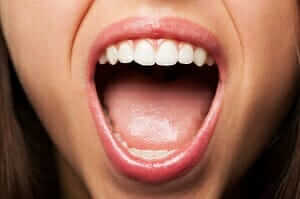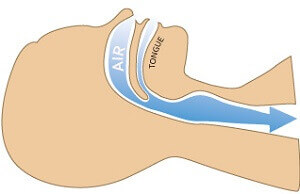How Mouth Exercises Prevent Snoring
 It’s estimated that up to 50% of Americans experience snoring issues which can disrupt quality sleep and can even lead to marital problems.
It’s estimated that up to 50% of Americans experience snoring issues which can disrupt quality sleep and can even lead to marital problems.
As a result of this growing epidemic, the snoring aid industry has boomed in recent years as entrepreneurs are looking to cash in on an opportunity to solve one of the worlds largest bedroom nuisances. It’s estimated that sleep is currently a $32 billion dollar industry which encompasses all types of snoring aids from CPAP machines to mouth guards and nasal dilators.
While there is certainly no shortage of expensive anti-snoring products to choose from, there is a shortage of information on how to stop snoring naturally without a product or medication. As they say, some of the best things in life are free, mouth exercises for snoring being one of them.
How exactly do mouth (Oropharyngeal) exercises help to prevent snoring?
 Snoring is typically caused by airway tissues that become loose as we age. As years go by, we lose muscle tone in our throat. As a result, these airway tissues begin to flap against each other as air rushes past. This is how the sound of snoring typically occurs.
Snoring is typically caused by airway tissues that become loose as we age. As years go by, we lose muscle tone in our throat. As a result, these airway tissues begin to flap against each other as air rushes past. This is how the sound of snoring typically occurs.
By strengthening the muscles surrounding the airway, you can reduce or even completely eliminate the sound of snoring.
How effective are mouth exercises when it comes to preventing snoring? Most experts agree that routinely performing mouth exercises can be somewhere between 30% – 40% effective.
Try spending fifteen minutes per day performing the following eight exercises while at home, on your daily commute, or while at work.
8 Exercises That Will Strengthen Your Airway Muscles and Prevent Snoring
Flat Tongue Press
- Place the tip of your tongue firmly against your lower incisors
- Press and hold your tongue against the bottom of your mouth
- Hold this position and then briefly relax before repeating
- Perform 2 sets of 10
Switch
- While eating, chew all of your food on one side
- Switch side every other bite
- Repeat throughout your meal
Palate Stroke
- With your mouth open, press the tip of your tongue firmly against your upper incisors
- Slowly move from front to back while keeping your tongue on the roof of your mouth
- Perform 2 sets of 10. Take a short break between sets
The Chipmunk
- Using clean hands, place your index finger against your inner cheek
- Press outwards with your finger
- Use your cheek muscles to resist the force from your index finger
- Hold for 5 seconds and then release
- Repeat 10 times
- Switch to the other cheek and repeat
Raise The Roof
- Open your mouth widely
- Using suction, draw the entire tongue up towards the roof of your mouth.
- Hold for 5 seconds and release.
- Perform 2 sets of 10
The Doctor
- Look in the mirror, open your mouth and say “ah”
- Focus the movement of the rear of the throat
- Raise and hold this area for a few seconds
- Perform 2 sets of 10
Vowel Rehearsal
- Rehearse your vowels – A, E, I, O U
- Do so slowly while ensuring that you enunciate each letter clearly
- Spend two minutes cycling through your vowels
- While performing this exercise, focus on the movement of muscles within the mouth and airway
This Little Piggy
- Open your mouth and stick out your tongue as far as it will go
- Take a deep breath
- Create a high-pitched squeal while letting the air out over thirty second
- Repeat four times
How Long Before I Notice Results?
 The question that everyone asks: How long do I have to perform these exercises before I see results?
The question that everyone asks: How long do I have to perform these exercises before I see results?
The answer is – it depends.
It depends on your age and just how loose and worn your airway muscles are. In general, you should notice an improvement in snoring within the first 4 weeks of performing these exercises. Some may see results sooner, while others may not notice any difference until after 4 weeks.
If you have been performing these exercises daily for several weeks and your snoring remains the same, it’s likely that the mouth exercises are not going to work and you will need to experiment with an anti-snoring product such as a mouth splint or a tongue stabilizer. These products are relatively inexpensive (typically cost under $100) and are greater than 70% effective. Many come with a trial period which includes a money back guarantee.
Share This Post: